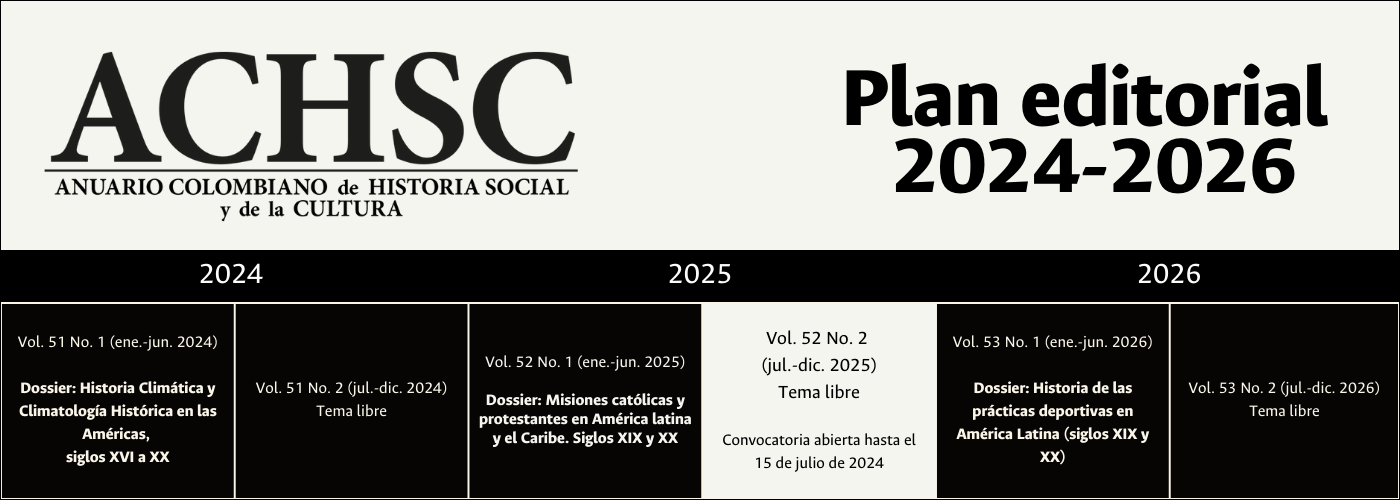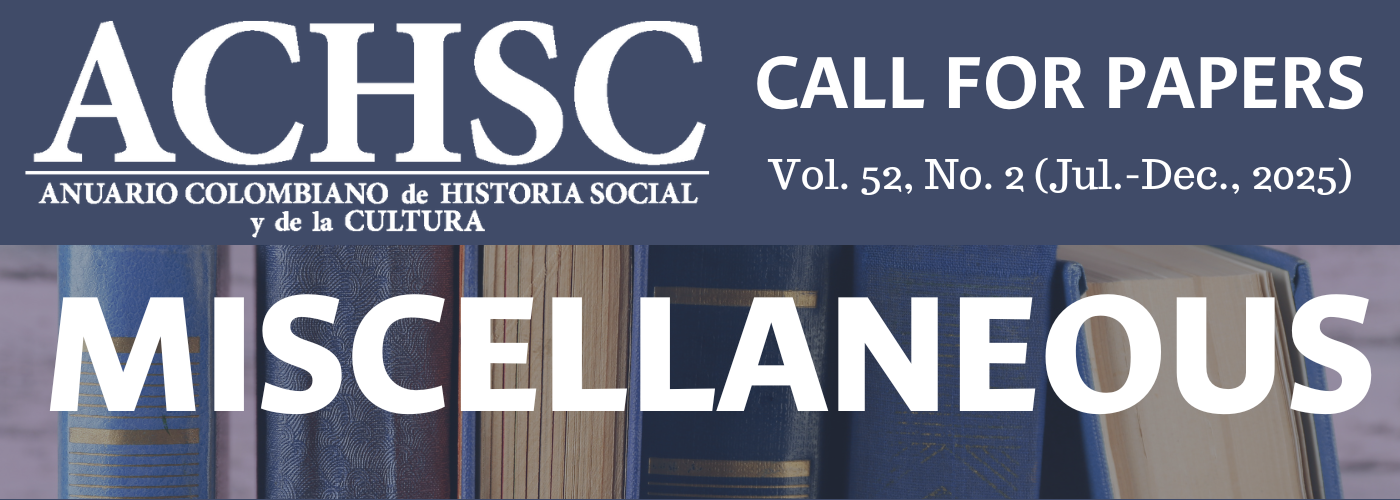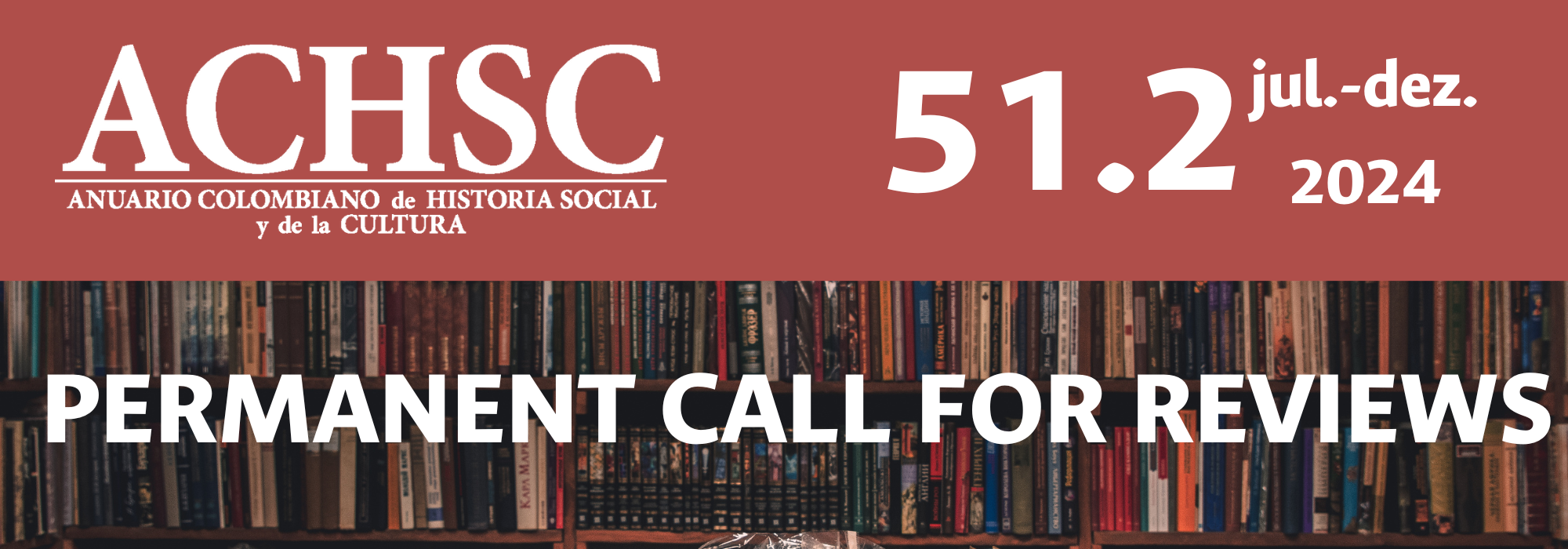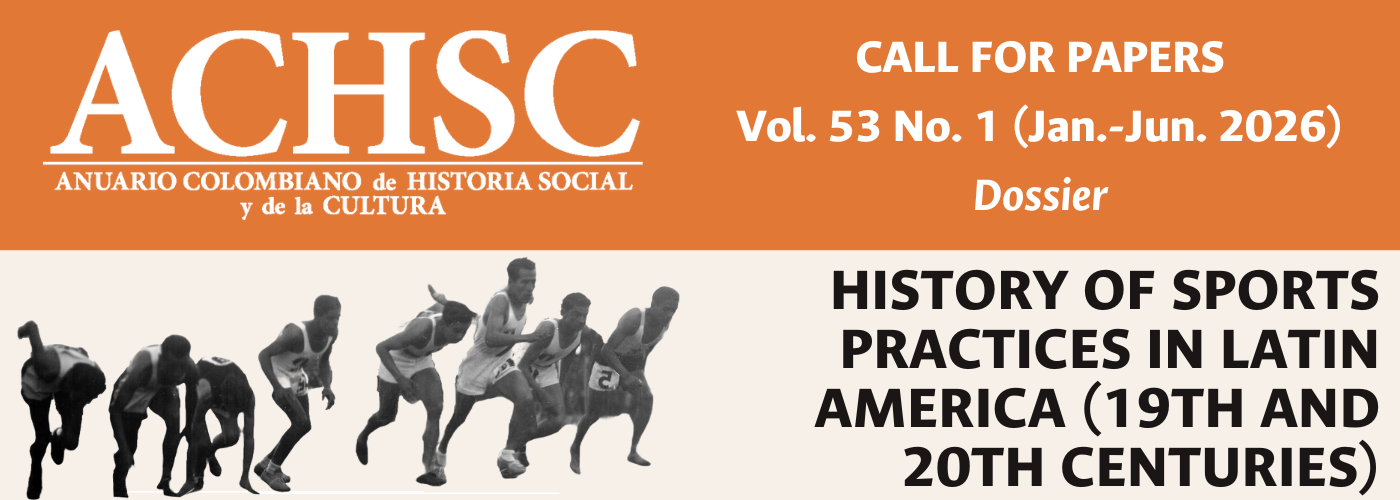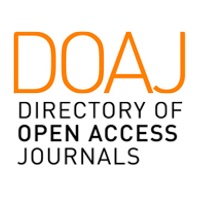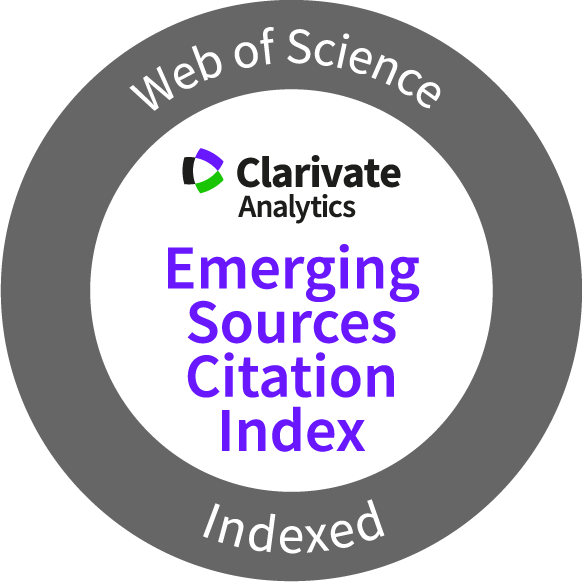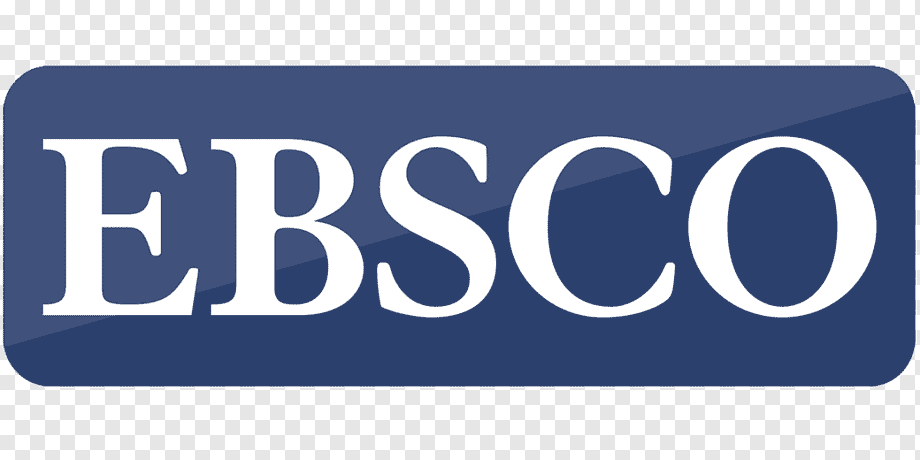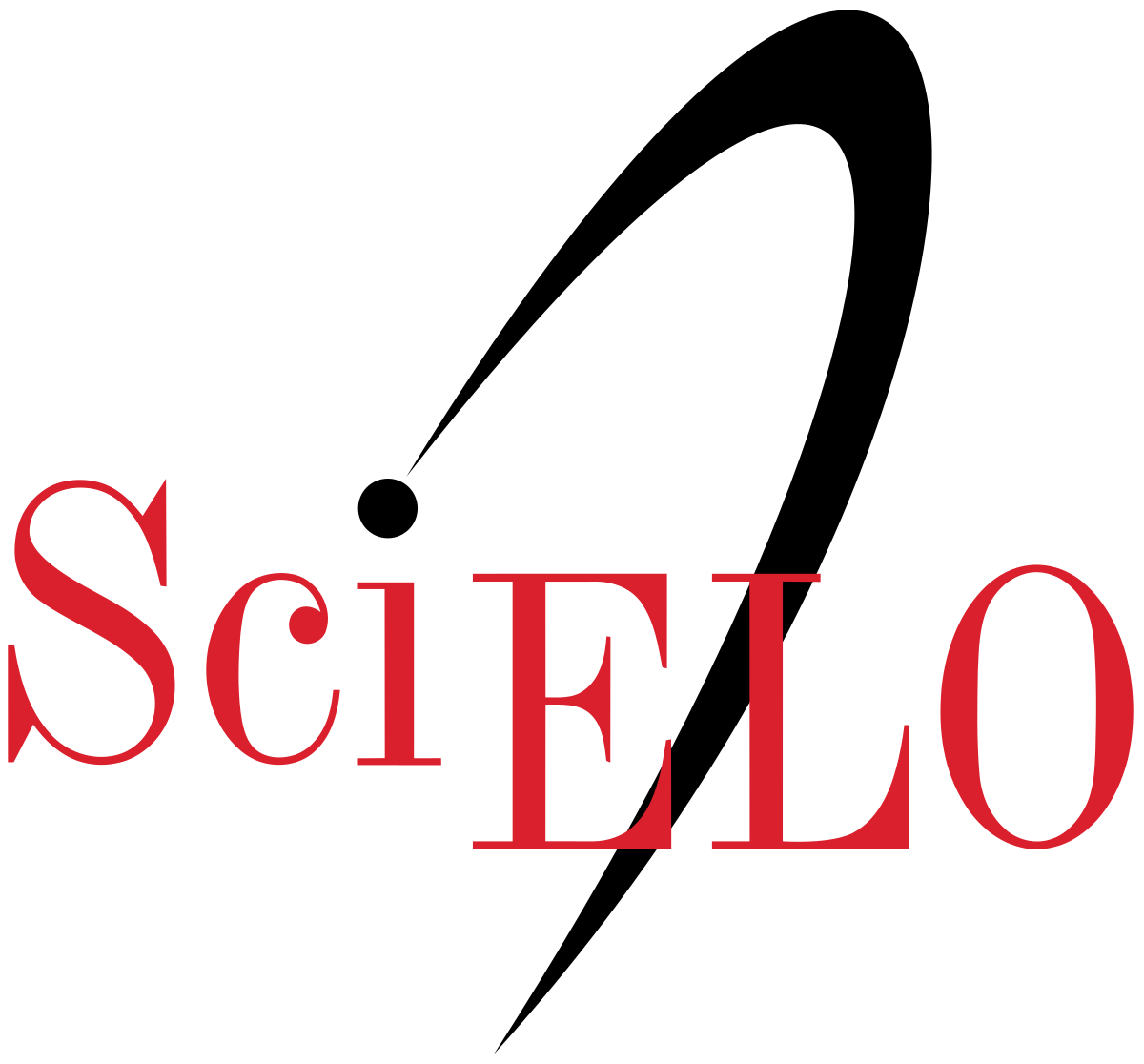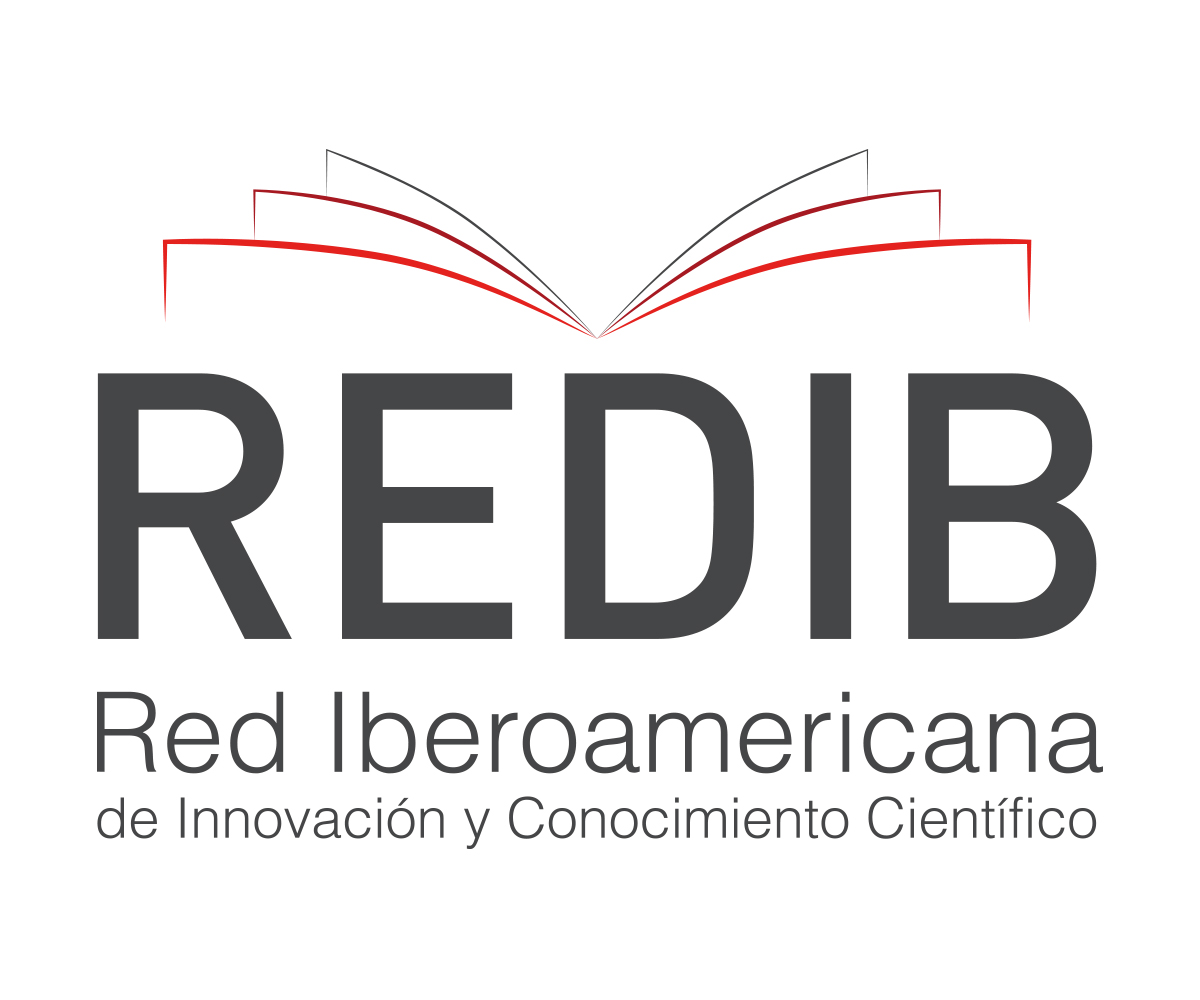Code of Ethics
Code of Ethics
The Anuario Colombiano de Historia Social y de la Cultura is a publication interested in consolidating the disciplinary field of history in Colombia and in Latin America. It is interested not only in the promotion of original and unpublished research but also in a close and clear dialogue with authors, juries, contributors and, in general, with all the community academic.[1]
Before contributing to the Journal as author or evaluator, the following considerations must be taken into account:
Considerations for Authors
Editorial Preparation. Authors interested in publishing in the Anuario must consult the “Guidelines for Authors” available in Spanish, English and Portuguese at: http://www.humanas.unal.edu.co/historia/publicaciones/anuario/. These guidelines give detailed information about how the manuscripts must be formally submitted to the Journal.
Recognition of Authorship. All persons referenced as authors must have worked in the preparation of the text and their order of appearance will be alphabetical or according to their participation in the research. This last modality will be agreed on between the authors. Material supporting the text (figures, maps, tables, annexes, among others) must have the respective licenses and references.
Funding. Articles funded by an institution must explicitly state the terms of funding, the project code that supports the research, the execution period and whether it is a finished product or a partial delivery.
Originality and Exclusivity of the Submission. Upon submission of the work to the Anuario, the authors must complete a letter accepting the conditions for submission of articles and reviews so that the Journal can proceed securely and diligently with the editorial process; authors must not submit manuscripts that have been previously published in scientific journals, compilations, chapters of books, memories of events, or any other publication.
When the article submitted is the continuation of earlier research, the authors must explicitly so state, to avoid confusion or the possible duplication of work. After the evaluation process, declined articles may be submitted by their authors to other media.[2]
As part of its editorial policy and in the interest of promoting national and international historiographical reflection, the Anuario is interested in original and unpublished articles. In case of doubts about originality or exclusivity, the Journal reserves the right to request relevant clarifications from the author.
Plagiarism. Plagiarism is incorrect and unethical conduct characterized by total or partial reproduction of works without recognition to the authors. Authors must reference all fragments or ideas taken from other sources. Paraphrased texts must not change the sense of the original text and must be correspondingly referenced.[3]
Editorial Cooperation After approval of the articles, authors must commit to a fluid dialogue with the editorial team of the Anuario to ensure quality of the issue. Authors will respond to inquiries from the Journal and the Journal will respond to concerns of the authors.[4] This cooperation process will be governed by an editorial timetable, responding on a timely basis to corrections and suggestions by the evaluators of the articles.
Considerations for Evaluators
Evaluation. Evaluators of the articles submitted to the Journal must have broad knowledge of the topic covered. Although the editorial team of the Anuario analyzes the suitability of evaluators, potential evaluators should also assess their suitability for the function. If an invitation to evaluate is declined, this must be so communicated to the Journal so that it can designate a new evaluator.
Conflict of Interests. Although the Anuario employs a “double blind” system for evaluation of the articles, the evaluators must abstain from the evaluation in the event of direct or indirect conflict of interests with the review.[5]
Arbitration Process. The Anuario offers a review format for evaluators to qualify submitted texts, from an academic, critical and documented perspective. The evaluation is based on the importance and originality of the topic, the contribution to historical or historiographical knowledge, bibliographic sufficiency and relevance as well as clarity in terms of argumentation, writing, coherence and the academic quality of the work.
The Anuario believes the evaluation process should be helpful to authors and therefore invites the evaluators to give reasoned and constructive academic criticism. The Anuario reserves the right of publication subject to the comments of the evaluators, the corrections made by the authors and the final approval by the Editorial Committee.
Review times. To meet the editorial schedule of the Anuario, all parties involved must respect the delivery dates agreed upon. Because one of the most import steps in the preproduction of an issue is the article evaluation, evaluators have three weeks from receipt of the text to deliver their comments.
Communication. Evaluators commit to constant communication with the editorial team of the Journal, either to arrange for delivery of the comments or to inquire about the work to be carried out.
Use of information. Another major responsibility of the evaluators is related to the use of the received manuscripts. As the texts are original and unpublished, they are made available to the evaluators only for evaluation purposes.
Ethical Responsibilities of Journal
The Anuario carries out a transparent editorial process, on equal terms, without privileging any author by institutional affiliation or academic career. The publication of articles and reviews depends solely on their academic quality and is not conditioned to other factors (subscription to the Journal, payment for publication, among others). The Anuario supports free access to its content, the promotion of debate and the development of the discipline of history.
The Anuario maintains anonymity between jurors and authors during and after the arbitration process, and under this logic, the results of the evaluations will only be communicated to the authors.
The Journal also undertakes to maintain open and clear communication with the authors and evaluators during the publishing process to ensure the quality of the work. As part of the cooperative process, the editorial team will always be attentive to resolve questions, comments and suggestions.
In order to ensure the academic and editorial quality of the Journal, the Editorial Committee reserves the right of approval or rejection of submitted material both before and after the evaluation process. All decisions will be based on strict academic arguments and on the rules established by the Journal.
[1] These ethical considerations are discussed in Juan D. Velásquez, “Sobre la ética en la publicación científica”, Revista avances en sistema de información 7.3 (2010): 7-10, available at: http://www.bdigital.unal.edu.co/28789/1/26644-93546-1-PB.pdf and Wilson E. Colmenares Moreno, “Ética en la publicación científica”, Curso de gestión de citas y referencias bibliográficas para las revistas científicas y académicas de acceso abierto de la Universidad Nacional de Colombia (Bogotá: Universidad Nacional de Colombia, 2014), available at:
http://www.bdigital.unal.edu.co/12234/7/Curso_Citas_Referencias_SINAB-Unidad_1-06_03_14.pdf
[2] Elsevier, “Envío simultáneo/múltiple, Publicación duplicada”. Available at:
https://www.publishingcampus.elsevier.com/websites/elsevier_publishingcampus/files/Guides/Quick_guide_SSUB02_ES_2015.pdf
[3] Elsevier, “Plagio”. Available at: https://www.publishingcampus.elsevier.com/websites/elsevier_publishingcampus/files/Guides/Quick_guide_PLA02_ES_2015.pdf
[4] Elsevier, “Policies and ethics”. Available at: http://www.elsevier.com/authors/journal-authors/policies-and-ethics
[5] Elsevier, “Conflicto de intereses”. Available at:
https://www.publishingcampus.elsevier.com/websites/elsevier_publishingcampus/files/Guides/Quick_guide_COI02_ES_2015.pdf. Can also be consulted at J. Matías Guiu y R. García Ramos, “Conflicto de intereses y publicaciones cientificas”, Neurología 27.1 (2012). Available at: http://www.elsevier.es/es-revista-neurologia-295-articulo-conflicto-intereses-publicaciones-cientificas-90101004



